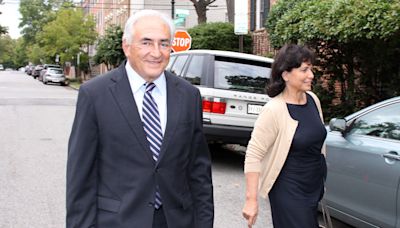Résultats de recherche
Adolf Hitler (20 April 1889 – 30 April 1945) was an Austrian-born German politician who was the dictator of Nazi Germany from 1933 until his suicide in 1945. He rose to power as the leader of the Nazi Party, becoming the chancellor in 1933 and then taking the title of Führer und Reichskanzler in 1934.
Adolf Hitler (born April 20, 1889, Braunau am Inn, Austria—died April 30, 1945, Berlin, Germany) was the leader of the Nazi Party (from 1920/21) and chancellor ( Kanzler) and Führer of Germany (1933–45). His worldview revolved around two concepts: territorial expansion and racial supremacy.
Adolf Hitler - Nazi Leader, WW2, Holocaust: Once in power, Hitler established an absolute dictatorship. He secured the president’s assent for new elections. The Reichstag fire, on the night of February 27, 1933 (apparently the work of a Dutch Communist, Marinus van der Lubbe), provided an excuse for a decree overriding all ...
Adolf Hitler (* 20. April 1889 in Braunau am Inn , Österreich-Ungarn ; † 30. April 1945 in Berlin ) war ein deutscher Politiker österreichischer Herkunft und von 1933 bis zu seinem Tod Diktator des Deutschen Reichs .
Why was Adolf Hitler significant? How did Adolf Hitler rise to power? Why did Adolf Hitler start World War II? Who were Adolf Hitler’s most important officers? How did Adolf Hitler die?
As early as 1925, Adolf Hitler vaguely declared in his political manifesto and autobiography Mein Kampf that he would invade the Soviet Union, asserting that the German people needed to secure Lebensraum ('living space') to ensure the survival of Germany for generations to come.
The religious beliefs of Adolf Hitler, dictator of Nazi Germany from 1933 to 1945, have been a matter of debate. His opinions regarding religious matters changed considerably over time. During the beginning of his political career, Hitler publicly expressed favorable opinions towards traditional Christian ideals, but later abandoned them.

